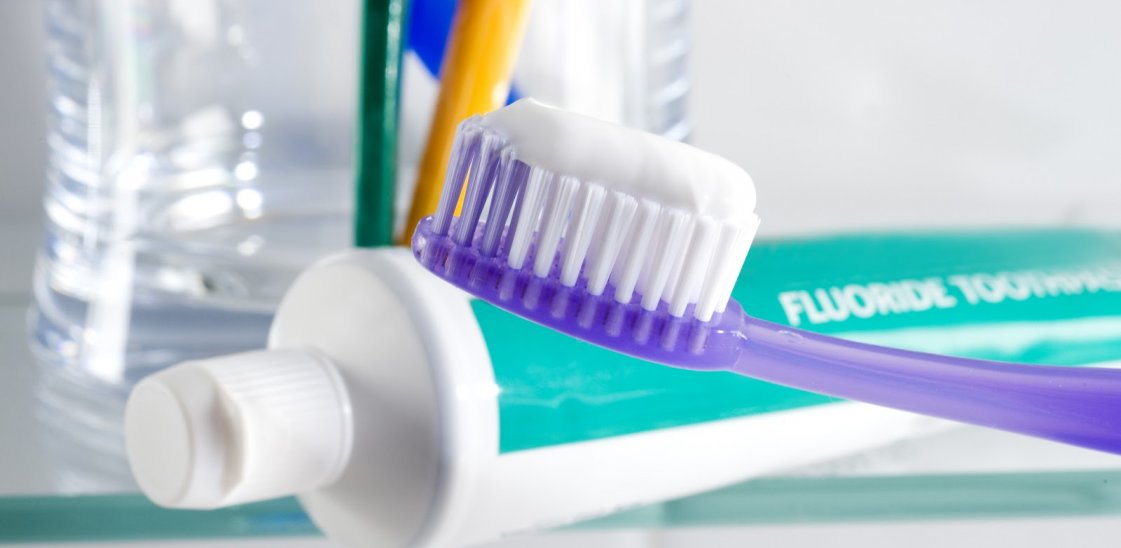
Is fluoride good for your teeth?
It seems that fluoride has been a widely debated substance for some time. With claims that there are risks associated with putting it into toothpaste and our drinking water, we at DenTek wanted to put these claims to rest. The truth is, fluoride can be good for your teeth when taken in small doses, such as in toothpaste.[1] Read on to find out more about where this substance comes from and why it’s so good for your teeth.
Where does fluoride come from?
Just like iron, calcium and other substances that can be found on our planet, fluoride is a mineral. In its gas form, it’s known as fluorine and this gas can be found most commonly in areas where there is volcanic activity and in rocks such as granite and limestone. When in a solid, salt form, it’s known as fluoride and can be found in both saltwater and freshwater.
In fact, fluoride can actually be added to our drinking water to improve the health of our teeth, as well as putting it in toothpaste.[1] But the question is, why is it so good for our teeth?
Why is fluoride in toothpaste?
Fluoride has been added to toothpaste since 1890, and there is a good reason for this. It does plenty of good things for our teeth, when used in small amounts, including prevention of tooth decay.[1]
What does fluoride do for your teeth?
- Improves enamel development
It’s thought that fluoride can help to strengthen enamel when we’re children, meaning our teeth are better protected as adults. It does this by changing the structure of the enamel when we’re under seven years old, and is one of the reasons why it’s so important to encourage your children to clean their teeth properly.[1]
- Reduces the risk of demineralisation
When the bacteria present in our mouths multiplies and isn’t brushed away, it can form plaque, a sticky substance that can make your teeth appear yellow. When this bacteria is combined with sugar, an acid is created that can reduce the minerals in the enamel and start to erode it, damaging your teeth. Fluoride helps because it reduces the risk of this demineralisation process and actually helps to remineralise the enamel.[1]
- Reduces tooth decay
Tooth decay occurs when the acids present in plaque begin to attack your teeth, especially when you eat or drink very sugary foods. Eventually, your teeth will form cavities. Brushing your teeth with a high-fluoride toothpaste reduces the acids present in the mouth and therefore also reduces the risk of tooth decay and cavities.[1]
When is fluoride not good for your teeth?
As we’ve previously alluded to, there are some risks associated with taking in too much fluoride. While the NHS states that fluoride should be safe when you stick to the recommended doses, it’s important that children use a toothpaste that has a lower amount of fluoride, such as 1,000 parts per million (ppm), compared to adult toothpaste that can have up to 1,500ppm.
Risks associated with high concentration levels of fluoride include dental fluorosis, a condition that is caused by too much fluoride as a child that results in white flecks or spots on the teeth, and thyroid problems that are caused by damage to the parathyroid gland.[1]
Resources:




